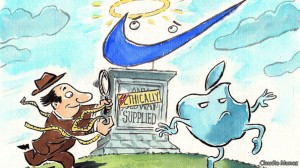Since my pursuit of my BCom degree and before, I’ve been considering becoming an entrepreneur so that I can make my own decision and take my company to lengths and further that allow me to support my community. however, I haven’t had the chance to figure out exactly what kind of business, when and where i’d like to open it, but a recent visit by the Sauder alumni ranted me the opportunity to look forward nonetheless.
The owners of Zimt and Tagga were present in our halls and told us of their journey how they got to where they currently are. Many terms that were coined during their presentation, terms that we had learnt in class that ensured me that my education was definitely going to prove worthwhile. They spoke of how they weren’t always on the path they were and ‘pivoting’ (which is the change in business direction) was a normal practice. Yet each decision created a collective to responsibility to allow them to be in the position that the were, making them grateful for their experiences.
So what i’ll ask my readers to do is to not be let down by small failures but to look for intellectual groups with whom innovation is possible.







